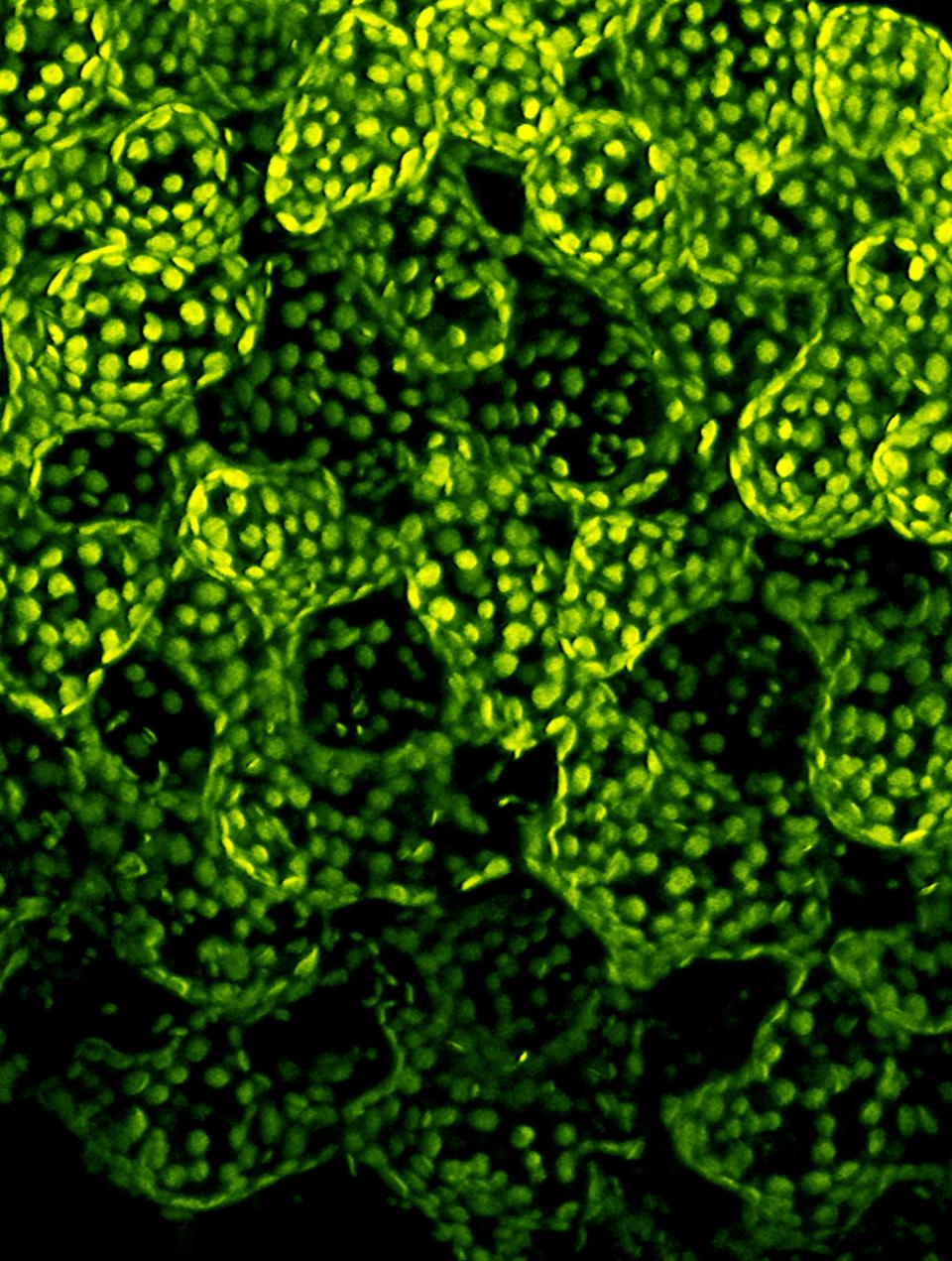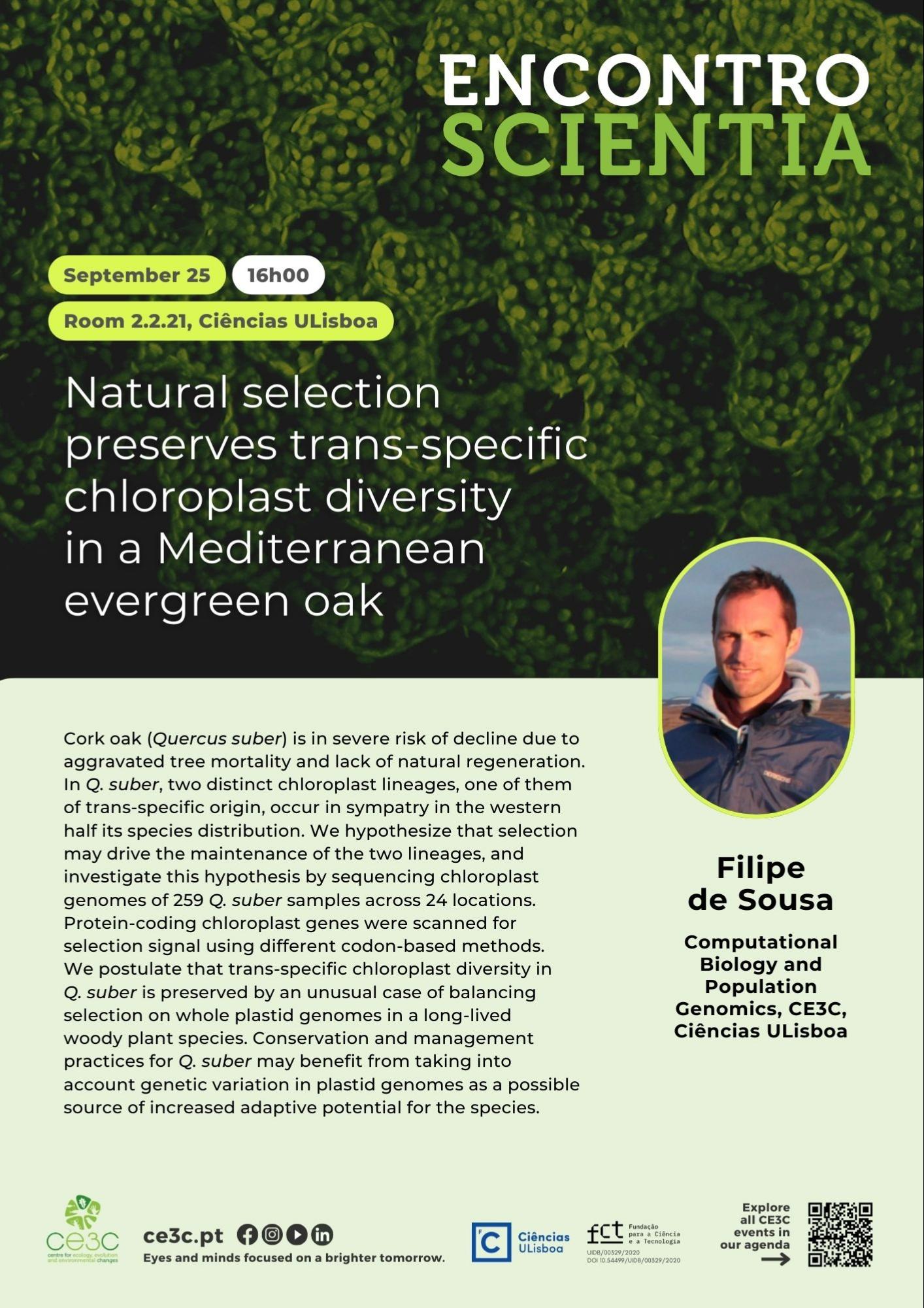-
Date:
25 Sep 2025
-
Location:
Room 2.2.21 - Faculty of Sciences of the University of Lisbon & Online
-
Schedule:
16h00 (Lisbon time), 15h00 (Azores time)
-
Lecturer or Responsible:
Filipe de Sousa (CE3C-CoBiG2)

Online access • LINK
Cork oak (Quercus suber) is in severe risk of decline due to aggravated tree mortality and lack of natural regeneration. In Q. suber, two distinct chloroplast lineages, one of them of trans-specific origin, occur in sympatry in the western half its species distribution. We hypothesize that selection may drive the maintenance of the two lineages, and investigate this hypothesis by sequencing chloroplast genomes of 259 Q. suber samples across 24 locations. Protein-coding chloroplast genes were scanned for selection signal using different codon-based methods. We postulate that trans-specific chloroplast diversity in Q. suber is preserved by an unusual case of balancing selection on whole plastid genomes in a long-lived woody plant species. Conservation and management practices for Q. suber may benefit from taking into account genetic variation in plastid genomes as a possible source of increased adaptive potential for the species.

